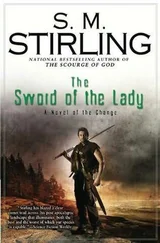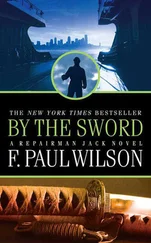Paul Christopher - The Sword of the Templars
Здесь есть возможность читать онлайн «Paul Christopher - The Sword of the Templars» весь текст электронной книги совершенно бесплатно (целиком полную версию без сокращений). В некоторых случаях можно слушать аудио, скачать через торрент в формате fb2 и присутствует краткое содержание. Жанр: Триллер, на английском языке. Описание произведения, (предисловие) а так же отзывы посетителей доступны на портале библиотеки ЛибКат.
- Название:The Sword of the Templars
- Автор:
- Жанр:
- Год:неизвестен
- ISBN:нет данных
- Рейтинг книги:3 / 5. Голосов: 1
-
Избранное:Добавить в избранное
- Отзывы:
-
Ваша оценка:
- 60
- 1
- 2
- 3
- 4
- 5
The Sword of the Templars: краткое содержание, описание и аннотация
Предлагаем к чтению аннотацию, описание, краткое содержание или предисловие (зависит от того, что написал сам автор книги «The Sword of the Templars»). Если вы не нашли необходимую информацию о книге — напишите в комментариях, мы постараемся отыскать её.
The Sword of the Templars — читать онлайн бесплатно полную книгу (весь текст) целиком
Ниже представлен текст книги, разбитый по страницам. Система сохранения места последней прочитанной страницы, позволяет с удобством читать онлайн бесплатно книгу «The Sword of the Templars», без необходимости каждый раз заново искать на чём Вы остановились. Поставьте закладку, и сможете в любой момент перейти на страницу, на которой закончили чтение.
Интервал:
Закладка:
The beer and sandwiches arrived. The sneering waiter served them and then disappeared again.
“I’ll think of something,” said Holliday. They began to eat.
Holliday was always fascinated by the way the French took their food so seriously. Here he was in the Parisian equivalent of a New York diner, and the food was worthy of a four-star bistro in the Village. The crusty bread was unbelievably fresh, the butter was sweet, the ham was lean, thinly sliced, and smoked to perfection, and the fries were hand-sliced and golden brown. No wonder the waiter sneered; he had a right to. He was serving the perfect sandwich to people who were used to something vaguely pinkish being slipped between two slices of Wonder Bread and sprinkled with shredded green cellulose that said it was lettuce.
Holliday looked down the long, tree-lined street on his left. According to the plaque high on the wall of the florist’s across from the cafй it was avenue Foch. Probably named by some developer a hundred years ago hoping to confuse it with the much more prestigious avenue Foch that led away from the Arc de Triomphe on the other side of town.
This avenue Foch looked like a good, solid middle-class place to live: trees neatly trimmed and unbroken lines of faintly Edwardian-looking apartment buildings butt-ended together to form a solid block, protected by well maintained wrought iron fences. Here and there along the row of buildings Holliday could see the gleaming brass plaques beside some of the doors discreetly advertising doctors, dentists, and maybe even a few lawyers.
Five doors down on the other side of the street a domestic drama was unfolding that caught Holliday’s attention for a moment. A man in his thirties was loading up a pale blue Peugeot Partner, a compact minivan that looked vaguely cartoonish. The trunk was filled to overflowing, and he was working on the roof rack, building a precarious pile of cardboard boxes and suitcases.
The man was dressed in gray flannels and a white shirt, but the shirt had the sleeves rolled up and he wasn’t wearing a tie. The shoes on his feet were open-toed sandals; a man preparing to go on vacation. The front door of the building opened and a pretty dark-haired woman appeared with three small children in tow, all girls. Two of the girls had suitcases while the youngest one had a pink overnight case wedged into a doll’s baby carriage.
There was a brief argument about the baby carriage, and the youngest girl began to cry. A moment later the second youngest started crying, too, while the oldest, a girl of about twelve or so, simply looked bored. Eventually the man in the gray flannels realized he was outnumbered four to one, and he capitulated, putting the baby carriage on the roof rack. The youngest girl, still crying, then took it upon herself to prolong the melodrama and bolted for the door of the apartment building, wailing in full voice. A drill sergeant’s bark from the mother stopped her dead in her tracks.
“Marie-Claire Allard! Viens ici im-med-i-ate-ment!”
The little girl stood her ground for a moment. Her mother stamped her foot once. Marie-Claire realized that further resistance was useless. Head bowed, the little girl trudged down the sidewalk and climbed into the minivan, followed by her two sisters. The mother got into the passenger seat, the man got behind the wheel. The Peugeot pulled away from the curb, heading east, out of the city.
“Parenthood,” said Peggy, who’d been watching, as well. She popped the last pomme frite on her plate into her mouth. “No ketchup,” she said mournfully. “Typical.”
“You done?” Holliday asked.
“Yup,” said Peggy. “You figured anything out yet?”
“Absolutely,” nodded Holliday. “Little Marie-Claire Allard just gave me an idea.”
They paid the bill, then crossed avenue Foch and went down the street to number ten. They went through the main door and stepped into a marble-tiled foyer. There was a brass plate array of apartments and buzzers. They scanned the names, but there was no Allard listed.
Holliday heard a faint creaking sound. A breeze was gently moving another door at the end of the hallway. The door was inset with a panel of frosted glass. Behind it Holliday saw a square of what appeared to be natural light. A courtyard? They went down the hallway, and Holliday pushed open the door.
They stepped out onto a flagstone path in a vest-pocket garden that led to the front door of a two-story stone house with a red-tiled roof. Once upon a time the house had probably been the original number ten avenue Foch, but over the years it had become enclosed by a looming canyon of apartments.
They went down the walk to the front door. The door was dark oak, deeply carved with decorative squares. The keyhole was ancient, big enough to stick an index finger into. Holliday could have picked the lock with a bent nail. He reached up to the lintel above the door and felt along it. He pulled down a huge iron key and slipped it into the lock. He turned the key and the door opened. They stepped inside.
The house was a far cry from the hotel on rue Latran. To the left was a large, paneled library with a fireplace, a giant antique globe on casters, and an enormous plasma TV nestled in a wall of books. There was a leather couch, a couple of comfortable-looking leather chairs, and a heavy oak desk that matched the front door.
A row of shuttered windows looked out onto the little garden and an old stone wall. The late-afternoon sun trickled in through the shutter slats, throwing bars of pewter light onto the dark green Persian carpet. A quick shuffle through the papers on the desk told Holliday that M. Pierre Allard was a professor of philosophy at the University of Vincennes, and Madame Allard was actually Dr. Allard, an orthodontist.
To the right of the front door there was a good-sized dining room with a state-of-the-art kitchen in the rear of the house. Upstairs there were four bedrooms, three small ones for the girl, a larger one for M. and Dr. Allard. Holliday and Peggy didn’t even say good night to each other. Holliday took the bedroom with the Barbie dolls, and Peggy took the one with the posters of Cold-play on the walls. They were both asleep in minutes.
27
They woke up the next morning refreshed but a little disoriented. Holliday opened his eyes to a shelf full of Barbies staring down at him in busty, well-coiffed splendor, and Peggy found herself squeezing into her jeans under the baleful James Dean gaze of Gwyneth Paltrow’s husband, Chris Martin. Once dressed, they met up in the library. Holliday was watching the big plasma TV and drinking coffee.
“There’s coffee in the squeeze pot on the counter, but there’s no milk,” he said. “Madame Allard cleaned out the fridge before they headed out.”
“Are we on the news?” Peggy asked.
“Nothing on TF1 or Canal Plus. Nothing on Sky News or CNN.”
“Maybe they haven’t found the body.”
“Maybe,” said Holliday. “Or maybe the Sыretй just put a clamp on the networks.”
Peggy fetched herself a cup of coffee, then came back into the library and sat down in one of the big leather chairs, her eyes on the television. There was an ad for the French-translated version of The Lost playing.
“Maybe we should have hightailed it out of the city yesterday,” said Peggy. “Maybe we’re trapped. Eventually the Allards are going to come back from their holiday.” Peggy’s expression soured. “I feel a little bit like Goldilocks here.”
“There won’t be any baby bears coming back to taste their porridge for a while,” said Holliday. “They had enough stuff packed into that minivan to last them for a year.” He smiled. “Not to mention the fact that there’s no porridge in the house; the French don’t seem to like canned goods or frozen pizza.”
Читать дальшеИнтервал:
Закладка:
Похожие книги на «The Sword of the Templars»
Представляем Вашему вниманию похожие книги на «The Sword of the Templars» списком для выбора. Мы отобрали схожую по названию и смыслу литературу в надежде предоставить читателям больше вариантов отыскать новые, интересные, ещё непрочитанные произведения.
Обсуждение, отзывы о книге «The Sword of the Templars» и просто собственные мнения читателей. Оставьте ваши комментарии, напишите, что Вы думаете о произведении, его смысле или главных героях. Укажите что конкретно понравилось, а что нет, и почему Вы так считаете.











